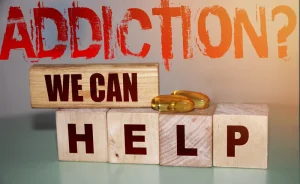
However, there are a number of medications that are FDA-approved for other illnesses that might also be useful in treating amphetamine addiction. Recent findings indicate that bupropion, the anti-depressant marketed as Wellbutrin, may reduce a methamphetamine-induced high as well as drug cravings elicited by drug-related cues. This medication and others are currently in clinical trials, while new compounds are being developed and studied in preclinical models. However, methamphetamine use disorder develops more quickly than an addiction to amphetamines. This could result from its more powerful effect on dopamine transporters, which leads to a greater release of dopamine in the central nervous system, giving users that “high” they crave.

How is amphetamine dependence treated?
No matter where you live, there is a drug rehab center that can help you overcome your addiction. However, some studies show that any reduction in alcoholism symptoms growth speed may be caught up by a “growth rebound” once the drug has stopped being taken. According to the authors, side effects were minimal, and no drug dependency was seen. However, in the 1950s and 1960s, amid growing concern about its adverse effects, it was replaced by newly available antidepressants.
Key Differences Between Amphetamines and Methamphetamines
Doctors can prescribe amphetamines to people living with ADHD, among other conditions. People may also use the drugs in an unprescribed manner, such as to stay awake for a study deadline or to suppress appetite. Though prescribed amphetamines are legal, taking the drugs without a prescription is illegal in the U.S. Outpatient treatment for amphetamine addiction can be a beneficial option for people who are unable to commit to an inpatient stay or who have less severe addictions. You live at home with a strong support system and commute to a treatment facility multiple days a week for counseling and other forms of therapy. Amphetamines are stimulant drugs that increase alertness and wakefulness.
- Children and teenagers who have a heart problem may be at risk of sudden death if they use amphetamines.
- Amphetamines are stimulant drugs that increase alertness and wakefulness.
- Amphetamines are usually taken by mouth but can be snorted, smoked, or injected.
- When users are not prescribed the medication and/or when it is overused, amphetamines can create dangerous side effects.
- If amphetamine addiction is impacting your life or the life of someone you care about, know that assistance is available.
What should I tell my healthcare provider before starting amphetamines?
Methamphetamine has a much longer duration of action and a larger percentage of the drug remains unchanged in the body. This results in methamphetamine being present in the brain longer, which ultimately leads to prolonged stimulant effects. Many amphetamines are Schedule II stimulants, which means they have a high potential for abuse and are legally available only through a prescription.

“The increase of dopamine, as well as the activation of the sympathetic nervous system, can lead to hallucinations and psychosis, similar to schizophrenia,” Franssen said. Together, those two chemicals can also have other mental effects. Once you decide you want to do something about your drug use, the next step is to get help and support. You miss out on or don’t go to as many recreational, amphetamine addiction social, or work activities because of your amphetamine use.
- In children who are hyperactive, however, amphetamines and related drugs, in the correct doses, can have a calming effect.
- These “study drugs” can become addictive, especially when students are stressed trying to cram for their classes.
- Amphetamines have been used since then in the development of a variety of drugs, most notably Adderall and Ritalin, which treat ADD and ADHD.
- If you’re finding it difficult to control your use of amphetamines, experiencing intense cravings, neglecting responsibilities, or continuing use despite negative consequences, you might be addicted.
- Many substances or behaviors that can cause addiction make a person feel good for a short time.
- When legally prescribed, they are typically used to treat attention-deficit hyperactivity disorder (ADHD) and narcolepsy.
Types of amphetamines

MDMA differs from other amphetamines in that it also interferes with the reuptake of serotonin (another neurotransmitter) in the brain. Amphetamine users frequently develop dependence, often referred to as a substance use disorder. While the physical changes amphetamines cause in the brain are permanent, several therapeutic treatment programs that can help people overcome their addiction. The most-successful treatments include addiction education, family counseling, cognitive behavior therapy and peer-support groups.

You may continue to crave the stimulant even though you know they’re causing persistent or recurrent physical or psychological problems. It is important that a person does not feel ashamed about seeking help or =https://ecosoberhouse.com/ following a program to support their recovery. It is also important to give a healthcare professional all the facts so that they can work with a person to develop the best possible treatment plan for them as an individual. Contact us today – Our addiction specialists are on hand to discuss the treatment options – Call our 24-hour free confidential helpline.
